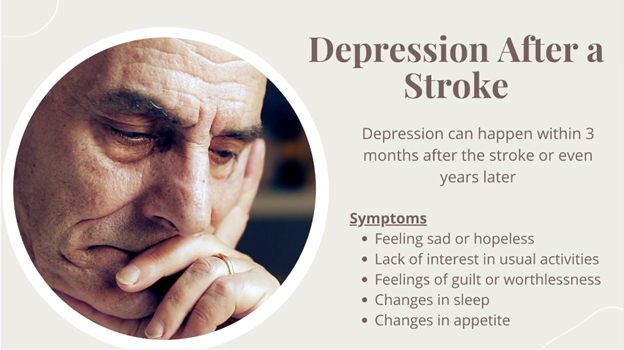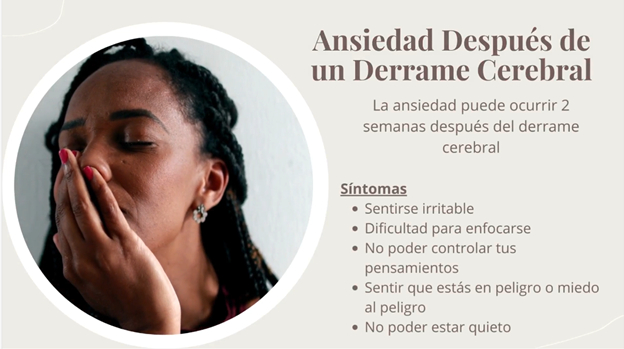Final ID: WP71
Video-based Mental Health Education for Persons who have had a Stroke: A Quality Improvement Initiative
Abstract Body: Background: Guidelines for secondary stroke prevention focus on vascular risk factor modification. Efforts to optimize stroke prevention begin with patient awareness of mental health and the connection between psychology and stroke risk. In addition to improved psychoeducation, culturally and linguistically diverse post-stroke education is needed. Purpose: The purpose of this quality improvement initiative was (1) to provide English or Spanish video-based mental health education (VMHE) to ≥ 75% of eligible patients treated in an outpatient stroke clinic and (2) to increase patient-provider mental health (PPMH) dialogue by ≥ 30%. Methods: A VMHE intervention was created in English and Spanish by modifying an existing stroke recovery education video. The VMHE YouTube video was made available in an outpatient stroke clinic over a 3-month period to eligible patients. Participants included 169 English-speaking patients and 37 Spanish-speaking patients, for a total of 206 individuals. Measures included the number of VMHE views from YouTube as well as provider electronic health record documentation (EHR) of PPMH dialogue (e.g., discussion of mental health, psychotherapy referral). Prior to the start of the project, PPMH dialogue data was captured over a 3-month period to be used as a comparison. Descriptive statistics were used to summarize demographic and outcome measures. Results: Of the participants that visited the clinic in the 3-month period, VMHE YouTube views averaged 68% and 66% for English-speaking and Spanish-speaking patients respectively. A pre-post project 45.3% increase in PPMH dialogue was noted in EHR documentation for the English-speaking participants as well as a significant association (p = 0.03) between the VMHE intervention and increased PPMH dialogue. No increase in PPMH dialogue was found for the Spanish-speaking participants. Conclusions: Culturally and linguistically diverse VMHE has the potential to improve PPMH dialogue and to decrease disparities in stroke prevention. Multi-modal delivery strategies should be considered to improve the number of views and ways to improve PPMH dialog between Spanish-speaking patients and providers should be studied. Evaluation of the effects of VMHE on improving post-stroke mental health knowledge attainment and retention and its impact on the management of mental health outcomes (e.g., depression and anxiety) is needed.
More abstracts on this topic:
A Contactless and Automated Approach to the Acute Stroke Assessment
Saadat Moh, Titus Ryan, Verkuilen Haley, Fleming Phil, Sur Sanjib, Sen Souvik
Both Infarct and Non-infarcted Brain Regions Drive Acute Deep Learning Based MRI Prediction of Stroke OutcomeLiu Yongkai, Van Voorst Henk, Jiang Bin, Yu Yannan, Zaharchuk Greg
Readers' Comments
We encourage you to enter the discussion by posting your comments and questions below.
Presenters will be notified of your post so that they can respond as appropriate.
This discussion platform is provided to foster engagement, and simulate conversation and knowledge sharing.
You have to be authorized to post a comment. Please, Login or Signup.
Rate this abstract
(Maximum characters: 500)


